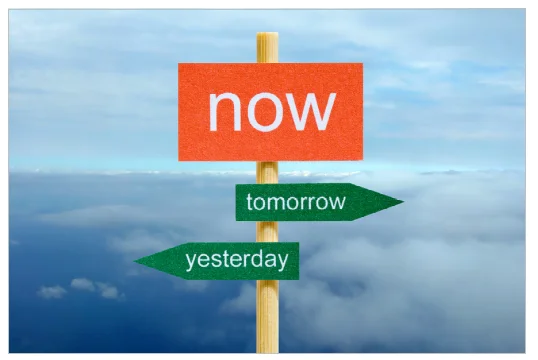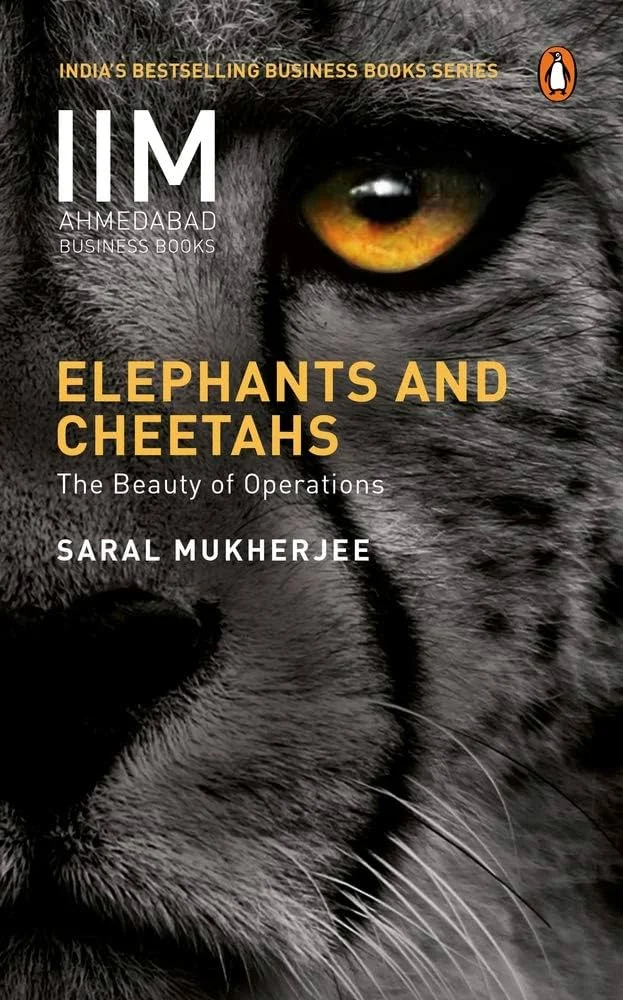
Mehak Uppal, HPCL
Mehak.uppal2@hpcl.in

Mental health at work is now a business priority. Employees must be trained to build their consciousness and emotional Intelligence to regulate emotions in tough situations, develop the patience to deal with difficult people, motivate oneself and the team, being gently assertive, ensure unbiased decision-making, enhance effective communications and promote DEI (Diversity, Equity and Inclusion). Clearly, it is in the interest of business to promote employees’ mental health and the cost of not doing it is quite high.
It can be promoted by making employees aware of the practices that support cultivation of a healthy mind. As per Harvard Business Review, employers must offer regular training on this aspect. The operative word is ‘regular’ because mental health challenges aren’t going away. It requires regular, unending action.
One author quoted often around this subject is Eckhart Tolle. His book “Power of NOW” has had a strong positive influence on millions of people globally. An International bestseller, it has been translated into 52 languages.
The book promotes living in the ‘Now’ as a powerful practice that can transform all aspects of our lives including professional. It informs that living in the Now can ensure that we lead a life of grace, ease and lightness. Apart from that, it will eventually have an Impact on collective consciousness.
This book aims to cater to Maslow’s top most hierarchy of needs i.e. Self-actualisation. It makes for quite a heavy read. Some of the key concepts mentioned in the book are listed below for reference. Many of these concepts are inter-related and bleed into each other.
Just like Eckart Tolle, let me request the readers to apply this knowledge internally to become more aware of your own nature, rather than using it as a tool to dissect others’ behavior.
BEING
The first concept mentioned in the book is Being. It is described as Eternal, ever present and a concept that is beyond birth and death. It is an invisible energy field that gives life to what we perceive as the physical body. It is all around, within us and ensures that Everything is connected. He deliberately does not use the term God as the word has loaded connotations for all of us.
Focus on the Present

If we silently watch our mind even now, we will realise that it is either in the past or in the future. Our mind is forever wandering. It goes in the past, haunted or smitten by the memories. These memories could range from some insignificant incident that happened an hour ago, to something major that occurred years ago. It is like a tape which plays time and again without a stop button.
Alternatively, the mind moves into the future – either fearful or in our own daydreams. If we make it a habit to regularly observe our mind, it might take us by surprise. It is practically a ping-pong ball!
Eckhart says that no event occurs in the past or future. Life is just a continuous stream of present moments over time. The past is a collection of once-present moments that have passed. The future is filled with several present moments that are yet to arrive. We are effectively missing out on life every time we oscillate between the past and the future.
As the past and future are simply alternative versions of the present, there are no advantages to worrying about them. If we can simply focus on the present, we will only be dealing with minor problems as they arise.
Relationship With Mind
Mind is the instrument that takes us from past to future. It is a disease to be not able to stop thinking. So how do we stop the incessant chatter? Thankfully, there’s a way and it is not as difficult as one might think.
All we have to do is observe the thoughts that it produces. Yes, it is that simple. Eckhart suggests that we observe our thoughts as they come and go in our mind space without engaging or battling with them. Slowly, we will start dis-identifying from our mind and the light of our Being/Consciousness, which is above these thoughts, will grow stronger.
Let’s inverse the popular mantra by Rene Descartes “I think, therefore I am” to “I am, therefore I think”.
Pain Body
After thoughts, let us examine our emotions. Next concept he introduces is Pain Body. It is an accumulation of painful life experiences that were not faced fully and accepted when they happened. After some years, they create an energy entity consisting of old emotions.
The emotional pain that we experience leaves behind a residue. That residue can survive only if we identify with it, so it tries hard to feed off us.
Again, the answer is to stay in the present where the true power lies. The moment we OBSERVE our pain body, the identification is broken. That’s when we will find our innermost strength (Being).
Fear
He specifically touches upon the emotion of fear. Many a time, the psychological condition of fear is divorced from any true and immediate danger. It is based on assumptions. The tricky point is that we cannot possibly cope with something that is only a mind’s projection.
Identification with mind gives it more energy, observation of mind withdraws energy from it. The more we live in Now, more we are free of pain and suffering.
Ego is Destructive
Our Ego has a negative Impact as it controls us through our thoughts and emotions. Eckart says that its existence depends on misery and therefore it causes unconscious destruction by baiting us into accepting our thoughts/emotions as our identity. It is scared to lose its identity which depends on remaining separate from the Being. It is known that more you battle with your Ego, stronger it becomes.
So what is the solution? The more we live in Now, more flexible is our Ego, more we are free of pain and suffering. Primarily, Dwell in Now and pay brief visits to past and future.
Surrender vs Resign
Surrender to the reality of a situation and then take steps to create a different path. There is a difference between resignation and surrender. While one denotes helplessness, the other denotes conscious decision. Surrendered actions involve letting go of judgment while seeking change.
Do not confuse surrender with an attitude of “I can’t be bothered anymore” or “I just don’t care anymore” because this attitude is tainted with negativity or resentment.
When Eckart says surrender he means that we must Surrender our resistance to the present moment. Therefore, we do not react but respond in any given situation. How do you know you have surrendered? When you feel light, clear and deeply at peace; then you have surrendered.
Stop Waiting
Are you a habitual waiter? If we look closely, our mind seems to be in a mode of waiting for the next event even when there’s no need for it. It has been so trained that it starts thinking of the next task even before the first one is finished.
Right now, the mind is thinking questions like – how much time left to finish reading this article? What’s next? It’s almost never completely in the present moment.
Just like it rushes ahead in these moment-to-moment situations, similar understanding can be applied to the broader scheme of things. We wait to achieve life’s next milestone, promotion, children’s admissions etc. We assume that one day when that particular desire is fulfilled, life will be fine. However, when that milestone is achieved, we start waiting for the next one.
Observation
Since observation is an important tool, it is important to discuss certain points mentioned regarding observation:
Don’t make an identity of what you observe, just continue observing. Identity denotes certain kind of rigidity or a preference.
Don’t judge, appreciate, condemn what you observe in your own self. Move beyond the binary of good and bad by viewing every experience as potentially moving you toward peace.
Remember that whatever you observe is temporary – your thoughts, emotions, behavior
Do not resist any kind of uncomfortable revelations. When something feels dark, all you have to do is switch on the light of awareness and it will automatically reveal the path ahead. So, watching itself is enough.
Become mindful of each moment
Reach a point where you will be observing the thinker in you and a higher level of consciousness will awaken. The past will melt away in the light of awareness
Breathing
Apart from observing thoughts/emotions, another tool to stay in the present is through Breath. Breath is always in the present moment. Become aware of your breath and gently start following the path it follows in your body. By virtue of following the breath, also become aware of the NOW.

Become aware of the impermanence all around. Nothing remains static – our thoughts, emotions, behavior, life situations, seasons, weather – they all undergo change with time. Our physical attributes also undergo a change. Geographically, we know that there was a sea where now the mighty
Himalayas stand. Water becomes clouds, clouds become rains, rains become river.
Cycles of success and failure come and go. Down time is essential for spiritual growth.
All we need to remember is that waves may arise on the surface but all is calm in the depths of the ocean. Similarly, through all these changing entities, what remains constant is the Being.
Be Permanently Alert
Eckart exhorts us to aim for sustained living in the Present. Many people tend to think that if they don’t feel something, if they numb themselves in the face of pain using work, drugs, substance abuse, anger, suppression, projection etc, then they have found a resolution to the circumstance. But suffering does not diminish when you make it unconscious. It is important to Stay present, stay conscious, be on our guard.
Manifest Your Flow of Energy
Eckhart says that unconsciously we make a choice to divert our energy either towards the Mind or the Self. To direct it towards the self, he suggests that we start becoming present to the inner energy/ Being Initially for 10-15 minutes at a time. Such a practice will create permanent flow of energy in due course of time. In turn, it will also give birth to the ability to find creative solutions in different situations.

HR Intervention
Eckart suggests small activities/ meditations in each chapter of the book and encourages the reader to invest time to experience the Being.
These exercises can be offered to the employees as separate modules with small capsules. The ongoing training can assist employees in becoming self-sufficient to find solutions to the mental health challenges faced in their daily lives. In this way, it could form a strong supporting component of the Employee Assistance Programme.
By accessing the Power on Now, each employee will operate at his/her optimum level while taking care of his/her own well-being. Thus, it will lead to effective contribution towards achieving the overall goals of the Corporation.
Posted in Book Reviews | No Comments »
Recent Articles
- Hit Refresh: The Quest to Rediscover Microsoft’s Soul and Imagine a Better Future for Everyone by Satya Nadella
- ‘Range – How Generalists Triumph in a Specialized World’ by David Epstein
- Handbook of Sustainable Development
- Into the heart of Himalayas
- The Millennials: Exploring the World of the Largest Living Generation
- Systemic Coaching & Constellations
- Beyond Talent
- Practicing the Power of NOW
- Elephants and Cheetahs: The Beauty of Operations
